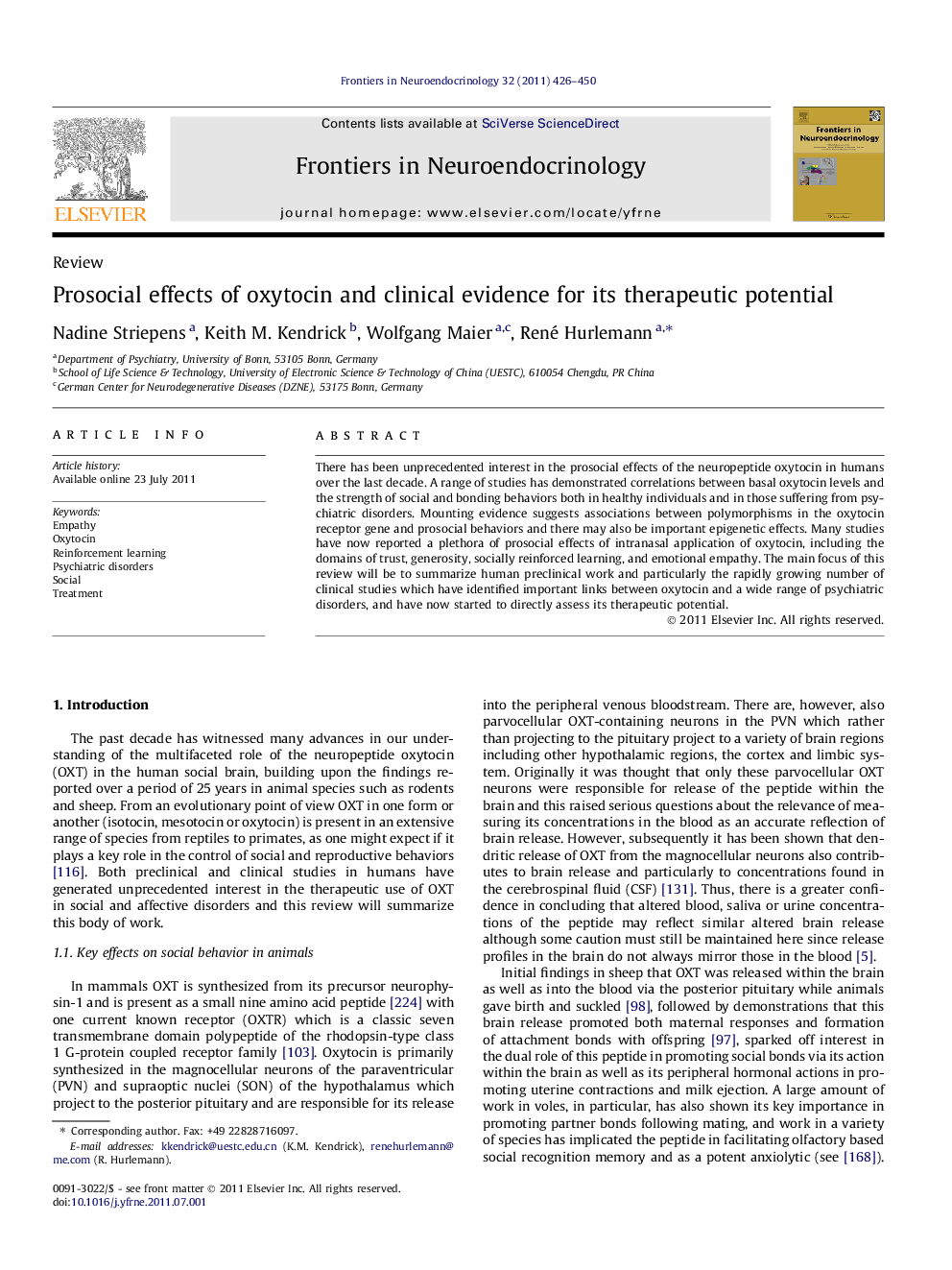| کد مقاله | کد نشریه | سال انتشار | مقاله انگلیسی | نسخه تمام متن |
|---|---|---|---|---|
| 5900682 | 1155973 | 2011 | 25 صفحه PDF | دانلود رایگان |

There has been unprecedented interest in the prosocial effects of the neuropeptide oxytocin in humans over the last decade. A range of studies has demonstrated correlations between basal oxytocin levels and the strength of social and bonding behaviors both in healthy individuals and in those suffering from psychiatric disorders. Mounting evidence suggests associations between polymorphisms in the oxytocin receptor gene and prosocial behaviors and there may also be important epigenetic effects. Many studies have now reported a plethora of prosocial effects of intranasal application of oxytocin, including the domains of trust, generosity, socially reinforced learning, and emotional empathy. The main focus of this review will be to summarize human preclinical work and particularly the rapidly growing number of clinical studies which have identified important links between oxytocin and a wide range of psychiatric disorders, and have now started to directly assess its therapeutic potential.
⺠Associations between human social and emotional behaviors and oxytocin are reviewed. ⺠Oxytocin has effects on social bonds, trust, learning, emotion recognition and empathy. ⺠Clinical research suggests therapeutic use for oxytocin in social and affective disorders. ⺠Oxytocin based treatments for autism, social phobia and schizophrenia show promise. ⺠Future work needs to identify oxytocin's neural targets and neuromodulatory actions.
Journal: Frontiers in Neuroendocrinology - Volume 32, Issue 4, October 2011, Pages 426-450